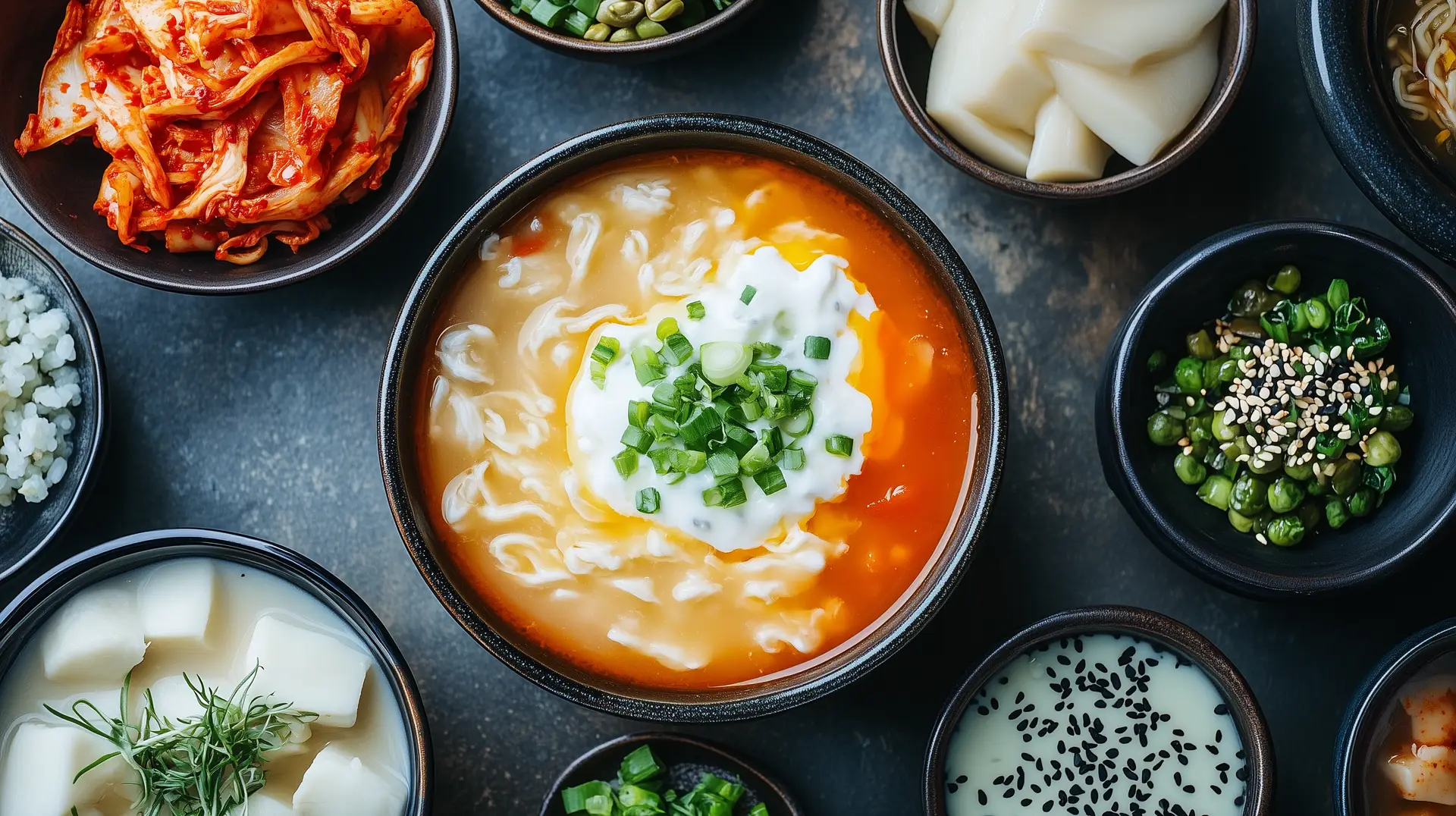Table of Contents
Your gut health is the key to so many aspects of your overall well-being, from immunity to mood regulation. Did you know that over 70% of your immune system resides in your gut? That’s why taking care of it should be a top priority! If you’re looking to boost your digestion and improve your gut health naturally, you’ve come to the right place. In this guide, we’ll cover everything from gut-friendly foods to lifestyle changes that promote a healthy gut microbiome. Ready to get your digestive system in top shape? Let’s dive in!
What is Gut Health and Why Does It Matter?
The microorganisms that live in your gut are called the gut microbiome. They include bacteria, fungi, and viruses. These tiny living things are very important to your health because they affect your immune system, your mental health, and even how well you digest food and absorb nutrients. Your body and mind both feel better when your gut is healthy. On the other hand, having a bad gut can cause many problems, such as gas, constipation, tiredness, and mood disorders.
The Brain-Gut Relationship
The link between the gut and the brain is a fascinating area of research. The gut and brain talk to each other through the gut-brain axis, a two-way communication system that connects the brain’s emotional and cognitive centers with the gut’s functions. For example, you might have stomach problems like nausea or indigestion when you’re stressed. On the other hand, having a bad gut can make anxiety and depression worse. Having a balanced gut can help your mental and physical health.
The Gut Microbiome is Important
The microbiome in a healthy gut does many things, like breaking down food, making vitamins, keeping the immune system in check, and keeping bad bacteria out. It is very important to keep a variety of good bacteria in your gut. Several things, like diet, lifestyle, and even medicines like antibiotics, can throw off the balance of bacteria in the gut. You can help your digestion, boost your immune system, and make your body’s natural defenses stronger by focusing on improving the health of your gut.
Lifestyle Changes to Support Gut Health
While diet plays a significant role in gut health, lifestyle factors can either support or undermine your gut microbiome. Implementing simple but impactful changes in your daily routine can contribute to better gut health and overall well-being.
Stress Reduction Techniques
Chronic stress can wreak havoc on your gut health by altering the composition of your gut microbiome and increasing inflammation. Finding ways to manage stress is essential for gut health. Practices like meditation, yoga, deep breathing exercises, and mindfulness can help lower stress levels and improve gut function. Even short, 10-minute mindfulness exercises can make a noticeable difference .
The Importance of Sleep
Lack of sleep doesn’t just affect your mood and energy levels—it can also negatively impact your gut health. Poor sleep can lead to an imbalance in gut bacteria, which in turn can increase the risk of digestive issues like bloating and constipation. Prioritizing good sleep hygiene, such as sticking to a regular sleep schedule and creating a restful environment, can support both gut health and overall wellness .
Regular Physical Activity
Exercise is one of the best things you can do for your gut health. Regular physical activity promotes healthy digestion and helps maintain a diverse and balanced gut microbiome. Studies have shown that exercise can increase the number of beneficial bacteria in the gut, which in turn improves digestion and enhances overall gut function . Activities like walking, swimming, and cycling are excellent options for boosting gut health.
Limiting Alcohol and Processed Foods
Alcohol and highly processed foods can disrupt the balance of bacteria in the gut and cause inflammation. Limiting your intake of these substances can significantly improve your gut health. Instead, focus on whole, unprocessed foods that support a healthy gut microbiome .
Natural Remedies to Heal and Soothe the Gut
In addition to diet and lifestyle changes, there are several natural remedies that can help heal and soothe the gut, especially if you’re dealing with digestive discomfort or an irritated gut lining.
Herbal Teas and Supplements
Certain herbal teas and supplements can be highly beneficial for gut health. For example, ginger tea is known for its anti-inflammatory properties, which can help soothe the digestive tract. Peppermint tea is another great option, as it relaxes the muscles of the gastrointestinal tract and can reduce symptoms like bloating and gas . Other supplements like probiotics, digestive enzymes, and L-glutamine can help repair the gut lining and support overall gut health.
Bone Broth and Collagen
Bone broth is a rich source of collagen and amino acids, both of which can help heal the gut lining. Collagen helps to seal and heal the gut, reducing permeability and promoting better digestion . Incorporating bone broth into your diet can be especially helpful if you’re dealing with conditions like leaky gut syndrome or other digestive issues.
Intermittent Fasting
Intermittent fasting is a natural remedy that gives your digestive system a break, allowing your gut to repair itself. By eating within a specific window and fasting for the rest of the day, you can improve gut motility and reduce inflammation. Studies suggest that intermittent fasting can help reset the gut microbiome and promote the growth of beneficial bacteria .
Foods to Eat for Gut Health
The saying “you are what you eat” is particularly true when it comes to your gut health. The foods you consume can either help nourish your gut or contribute to an imbalance in your gut microbiome. A diet rich in whole, unprocessed foods is the key to maintaining a healthy gut. Here are some of the best foods you can eat to support your gut health:
High-Fiber Foods
Fiber is the fuel that powers your gut bacteria. Consuming a high-fiber diet ensures that your gut microbiome stays healthy and diverse. Whole grains, fruits, vegetables, legumes, and nuts are all excellent sources of fiber. When you eat fiber-rich foods, your gut bacteria break it down into short-chain fatty acids, which have numerous benefits, including reducing inflammation in the gut and promoting overall gut health . Foods like oats, apples, and beans contain soluble fiber, which is especially beneficial for gut health because it promotes the growth of beneficial bacteria.
Fermented Foods
Fermented foods like yogurt, kimchi, sauerkraut, kefir, and miso are packed with live bacteria, also known as probiotics. These probiotics can help restore the balance of bacteria in your gut, especially after taking antibiotics or experiencing digestive issues. Including a variety of fermented foods in your diet can improve digestion, reduce bloating, and support a healthy immune system .
Probiotics vs. Prebiotics
While probiotics are live bacteria found in fermented foods, prebiotics are a type of fiber that feeds the good bacteria in your gut. Think of probiotics as the bacteria and prebiotics as their food source. Foods like bananas, onions, garlic, and asparagus are rich in prebiotics. Combining prebiotics and probiotics in your diet ensures that your gut bacteria thrive and remain in balance .
Hydration and Gut Health
Water is crucial for maintaining a healthy digestive system. Staying hydrated helps to break down food so your body can absorb nutrients more effectively. It also supports the lining of the intestines and keeps your digestive tract functioning smoothly. Drinking plenty of water throughout the day ensures that your gut stays well-lubricated and that waste moves through your system efficiently .
Common Gut Health Issues and Natural Solutions
Gut health issues are common, but there are plenty of natural solutions that can help alleviate symptoms and improve your digestive function.
Bloating and Gas
Bloating and gas are often caused by an imbalance of gut bacteria or difficulty digesting certain foods. To reduce bloating, try eliminating foods that are known to cause gas, such as beans, carbonated drinks, and artificial sweeteners. Adding more fiber to your diet, drinking herbal teas, and incorporating fermented foods can help reduce bloating and promote healthy digestion .
Acid Reflux and Indigestion
Acid reflux and indigestion can be incredibly uncomfortable, but there are natural ways to manage these symptoms. Eating smaller meals, avoiding trigger foods like spicy or fatty foods, and staying upright after eating can all help prevent acid reflux. Additionally, drinking ginger tea or consuming a tablespoon of apple cider vinegar diluted in water before meals can help reduce indigestion .
Constipation and Diarrhea
Constipation and diarrhea are often signs that your gut is out of balance. To relieve constipation, focus on increasing your intake of fiber-rich foods like fruits, vegetables, and whole grains, and make sure you’re drinking plenty of water. On the other hand, if you’re experiencing diarrhea, it may be helpful to eliminate certain foods that irritate the gut, such as dairy or gluten, and consume more probiotic-rich foods to restore balance .
Food Intolerances
Identifying and avoiding food intolerances is crucial for maintaining good gut health. Common intolerances include lactose, gluten, and certain FODMAPs (fermentable carbohydrates). If you suspect you have a food intolerance, consider doing an elimination diet to pinpoint the culprit and work on healing your gut by removing the offending food from your diet .
Conclusion
Improving your gut health naturally doesn’t have to be complicated. With the right diet, lifestyle habits, and natural remedies, you can support your digestive system and improve your overall well-being. Remember, a healthy gut is the foundation for a healthy life! Take the steps mentioned above and feel the difference in your energy, digestion, and even mood. Want more tips on maintaining a healthy lifestyle? Check out our resources for more expert advice!



